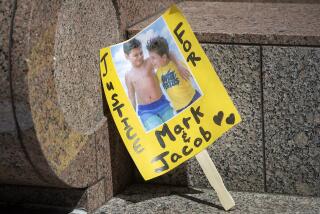Supreme Court considers role of eyewitness testimony
Hundreds of innocent people freed from prison in recent decades thanks to DNA tests had something in common: They were convicted based on mistaken eyewitness identification.
The testimony of an eyewitness can be uniquely powerful and utterly wrong, an attorney told the U.S. Supreme Court on Wednesday, asking the justices to establish a stronger legal rule to screen out potentially unreliable testimony before trial. Such testimony is “probably the leading cause of miscarriages of justice” in this country, said Richard Guerriero, a defense lawyer from Concord, N.H.
For the first time in more than 30 years, the high court focused squarely on the problem of unreliable eyewitnesses. But several justices said it was up to juries to decide what to believe and what to ignore.
“Tell that to the jury,” Justice Antonin Scalia told Guerriero, echoing the theme of the argument.
Justice Ruth Bader Ginsburg agreed. “You can ask the judge to tell the jury: ‘Be careful. Eyewitness testimony is often unreliable.’ You can point that out in cross-examination. You can say something about it in your summation to the jury. Why aren’t all those safeguards enough?”
It would be “a drastic change … from the way trials are now conducted” if a judge could screen out certain “unreliable” eyewitnesses, said Justice Samuel A. Alito Jr. He cited the example of a rape victim who thinks she can identify her attacker. Do you want “a judge to say that victim may not testify?” he asked.
The case before the court concerns Barion Perry, a New Hampshire man convicted of theft from cars in a Nashua parking lot. A woman on the fourth floor of a nearby apartment building had seen a “tall black man” opening the trunk of a neighbor’s car and taking several items. When a police officer arrived, he saw Perry in the parking lot carrying several speakers. Perry said he had found them on the ground.
When a second officer arrived, the first officer on the scene spoke to the woman in the fourth-floor apartment. She pointed down to Perry in the parking lot and identified him as the man who broke into the car. But she could not identify him later when shown a photo of his face.
Perry was charged with theft, but before trial, his attorney urged the judge to exclude the woman’s testimony. The judge refused, noting that the officer had done nothing wrong. Perry was convicted and sentenced to three to 10 years in prison.
In the Supreme Court, Perry’s lawyer said trial judges should be authorized to screen out potentially unreliable testimony from eyewitnesses, regardless of whether the police prompted them to identify a particular person.
But none of the justices sounded ready to take that step. They indicated they did not want to authorize new “mini-trials” so judges could screen out eyewitnesses whose testimony may not be reliable.
More to Read
Start your day right
Sign up for Essential California for news, features and recommendations from the L.A. Times and beyond in your inbox six days a week.
You may occasionally receive promotional content from the Los Angeles Times.






